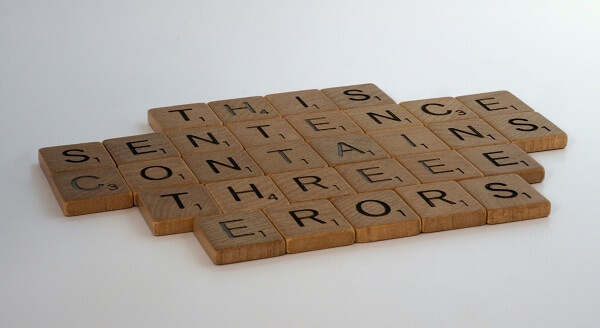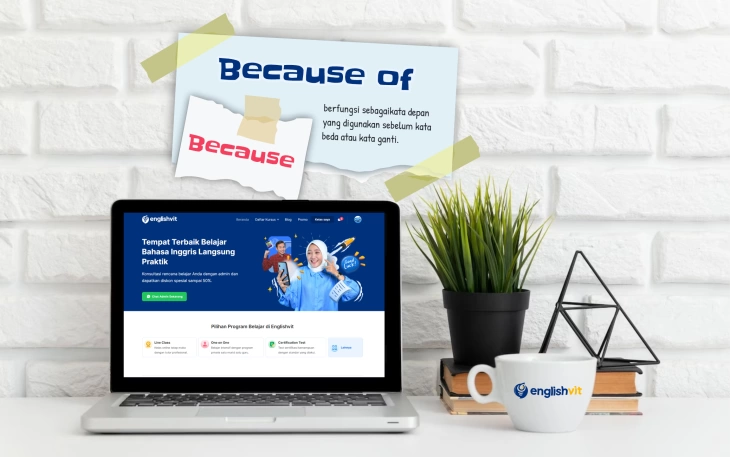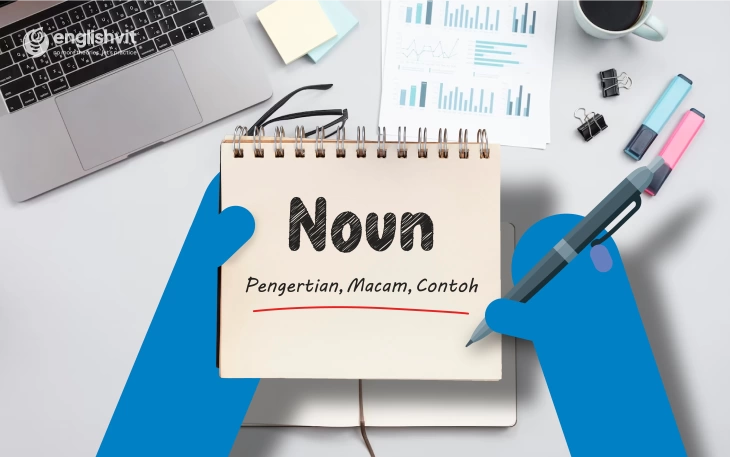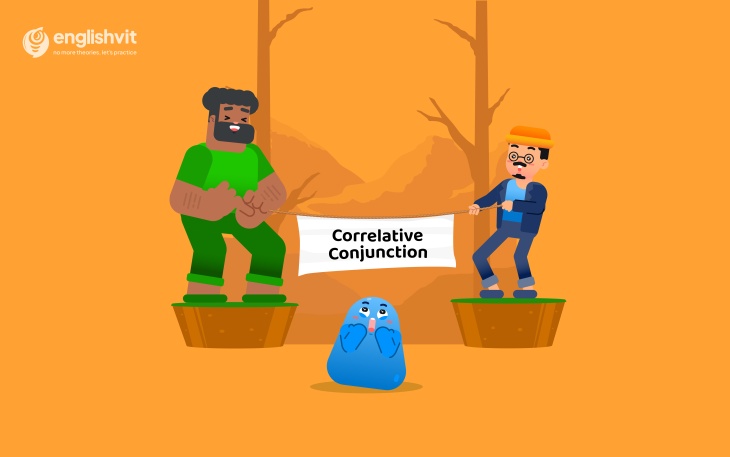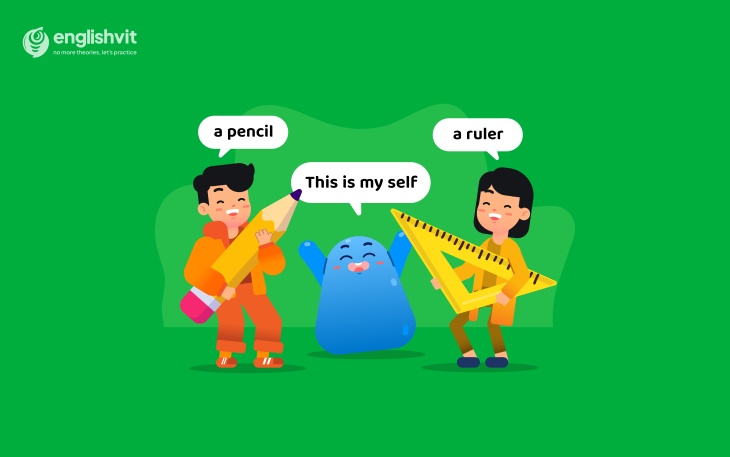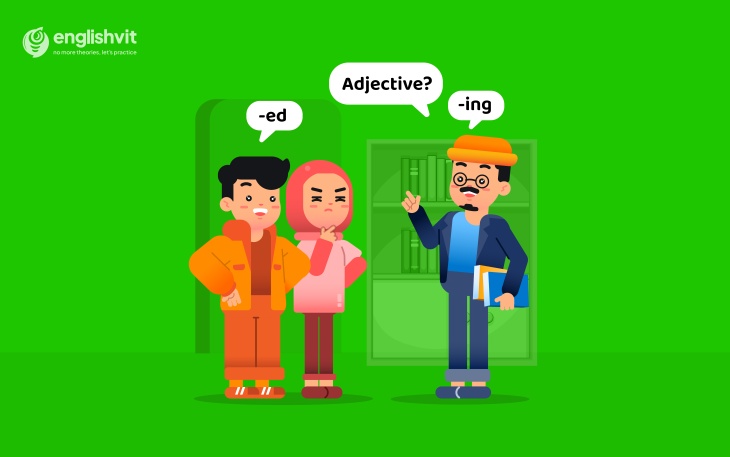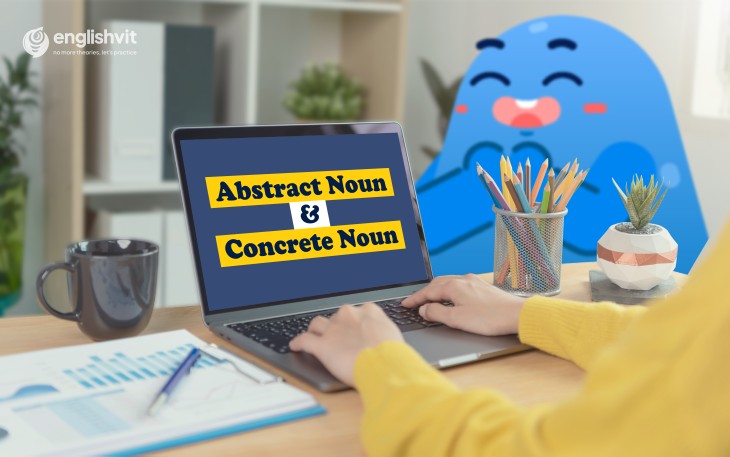Englishvit.com - Determiner merupakan kata yang berfungsi memperjelas posisi suatu kata benda. Dalam artikel kali ini, kita akan mengulas penggunaan “this”, “that”, “each”, “every”, “all”, “much”, “many”, “one” and “ones.”
Determiners: this, that, these, those
Saat menunjuk hal yang terletak dekat, biasanya kita gunakan “this” (untuk singular and uncountable nouns) dan “these” (untuk plural nouns).
Saat menunjuk hal yang jauh letaknya, biasanya kita gunakan “that” (untuk singular and uncountable nouns) dan “those” (untuk plural nouns).
“I love this watch!”
“What about that one over there?”
“Do you like these shoes?”
“Actually, I prefer those ones in the window.”
Determiners
Kata lainnya yang jatuh sebelum kata benda atau noun adalah each, every, either, enough, much, many, a lot of / lots of, several, a few, a little, all, both, some dan any.
“I like each of these shirts.”
“I’d like to buy every clothes in this store”
“Which shirt do you prefer? Either is fine.”
“We don’t have enough time to go to all the clothes shops.”
“I don’t have much money on me today.”
“He doesn’t have many shirts for work.”
“They have a few coats on sale.”
“I’d like several pairs of sandals for summer.”
“I want to buy all of these shirts!”
“I’d like to buy both the green shirt and the red shirt.”
Each and every
- Each digunakan untuk merujuk kepada bentuk jamak dari noun (kata benda) sebagai individu atau unit tersendiri.
“Each pair of boots is hand-made.” (tiap sepatu dibuat dengan metode hand-made)
- Every digunakan untuk merujuk kepada noun (kata benda) sebagai suatu kesatuan.
“Every shoe shop in this town is expensive.” (semua toko sepatunya mahal).
- “Either” memiliki fungsi untuk mengartikan salah satu dari keduanya atau setiap dari dua yang diikuti oleh kata benda dan kata kerja tunggal.
“Which one of these jumpers do you want? Either goes well with my jeans.”
- Each dan every sama-sama diikuti oleh singular countable noun.
“Each dress is beautiful.”
“Every dress is beautiful.”
Several, all and both
- “All” dapat digunakan untuk plural atau uncountable noun.
“All the jeans are beautiful.”
- Penggunaan “both” dan “several” sama dengan “all”.
“Both shirts are lovely.”
“Both of those hats suit you.”
“They have several pairs of blue trousers in that shop.”
“They have several of those shoes that you like.”
Note: Jangan gunakan “the” sebelum several, all, or both.
Enough and a few
“Enough” berarti “cukup”. “Few” atau “a few” berarti “tidak banyak”.
- Enough diikuti uncountable noun, sedangkan few / a few diikuti plural noun.
(Note: “little” atau “a little” boleh diikuti uncountable nouns.)
“We’ve got enough time to go to the shopping centre.”
- Enough of + determiner + noun
“I’ve got enough of this type of T-shirt at home. I don’t need any more.”
- A few + plural noun
“There are a few interesting shops on this road.”
- A few of + determiner + noun
“I want a few of these woolen scarves for winter.”
- “little” dan “a little” diikuti uncountable nouns.
“Little” lebih sedikit dari “a little”.
“We have a little time left.” (Mungkin sekitar 20 menit)
“We have little time left before our plane.” (Mungkin hanya 10 menit)
Much, many and a lot
- Gunakan “much” dalam uncountable noun, “many” dengan countable (plural) noun, dan “a lot of” / “lots of” untuk kedua tipe noun tersebut.
“I don’t have much money.”
“She doesn’t have many friends.”
- In negative sentences
“I don’t have much / a lot of time.”
“He doesn’t have many / a lot of shoes. ”
“She doesn’t have a lot of clothes.”
- In questions
Kamu dapat menggunakan many atau a lot of / lots of dalam membuat pertanyaan.
“Does he have many friends?”
“Does he have a lot of friends?”
Note: Tidak ada perbedaan antara “a lot of” dan “lots of”.
Using “one” and “ones”
- Kita dapat menggunakan “one” atau “ones” sebagai pronoun/kata ganti – untuk menggantikan noun.
“How much is that bag?”
“The green one? It’s £50.”
“How much are those oranges?”
“The Spanish ones? They’re £2 a kilo.”
- Kamu boleh juga menggunakan “a” atau “an” jika terdapat adjective:
“I’d like a small one.”
(Jangan mengatakan “I’d like a small” ataupun “I’d like a one”.)
Itulah tadi penjelasan tentang determiner atau kata penentu dalam bahasa Inggris beserta contoh-contohnya. Kalau kamu merasa ada yang ingin ditanyakan, silahkan tulis di kolom komentar ya! KLIK DI SINI untuk konsultasi, GRATIS!
